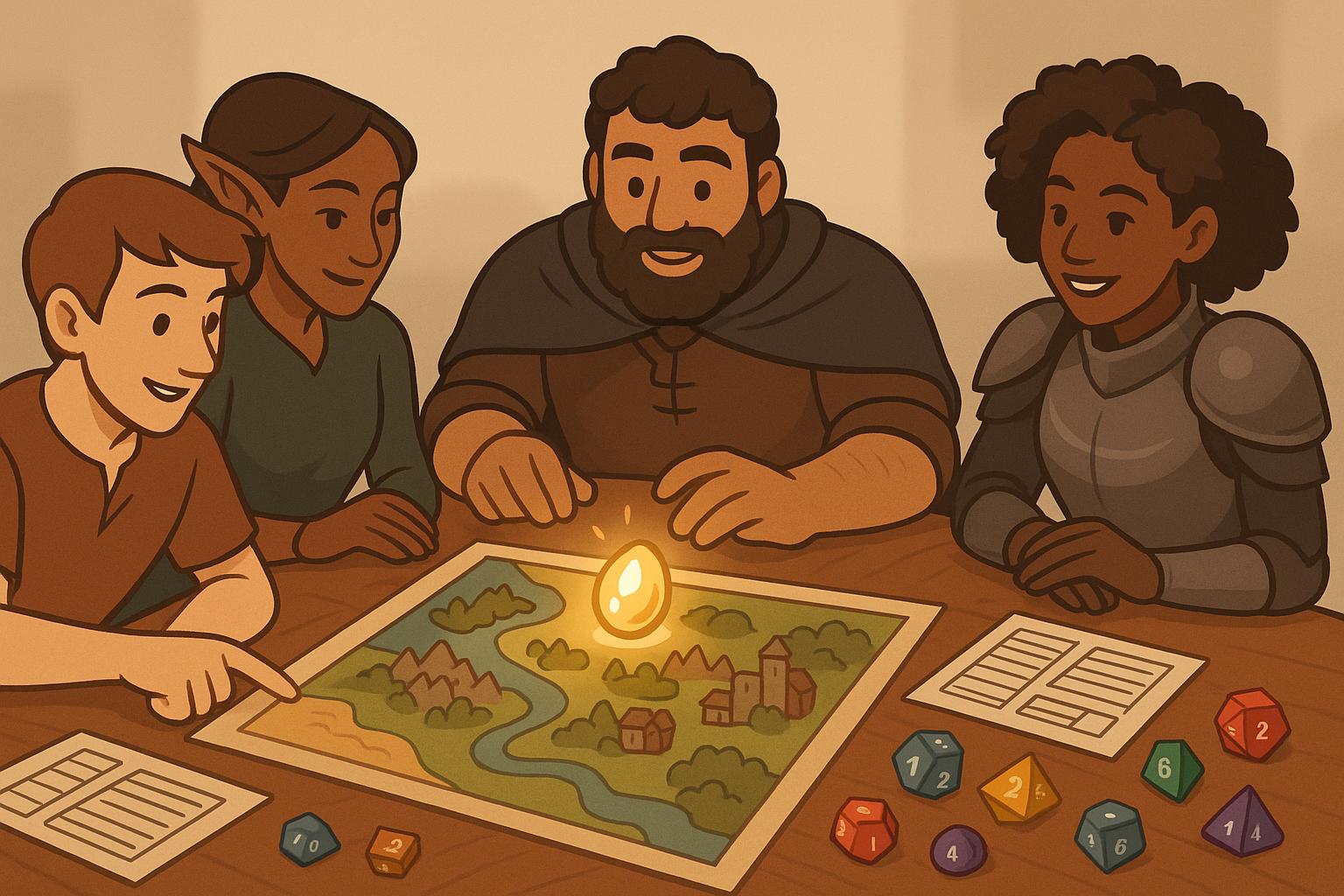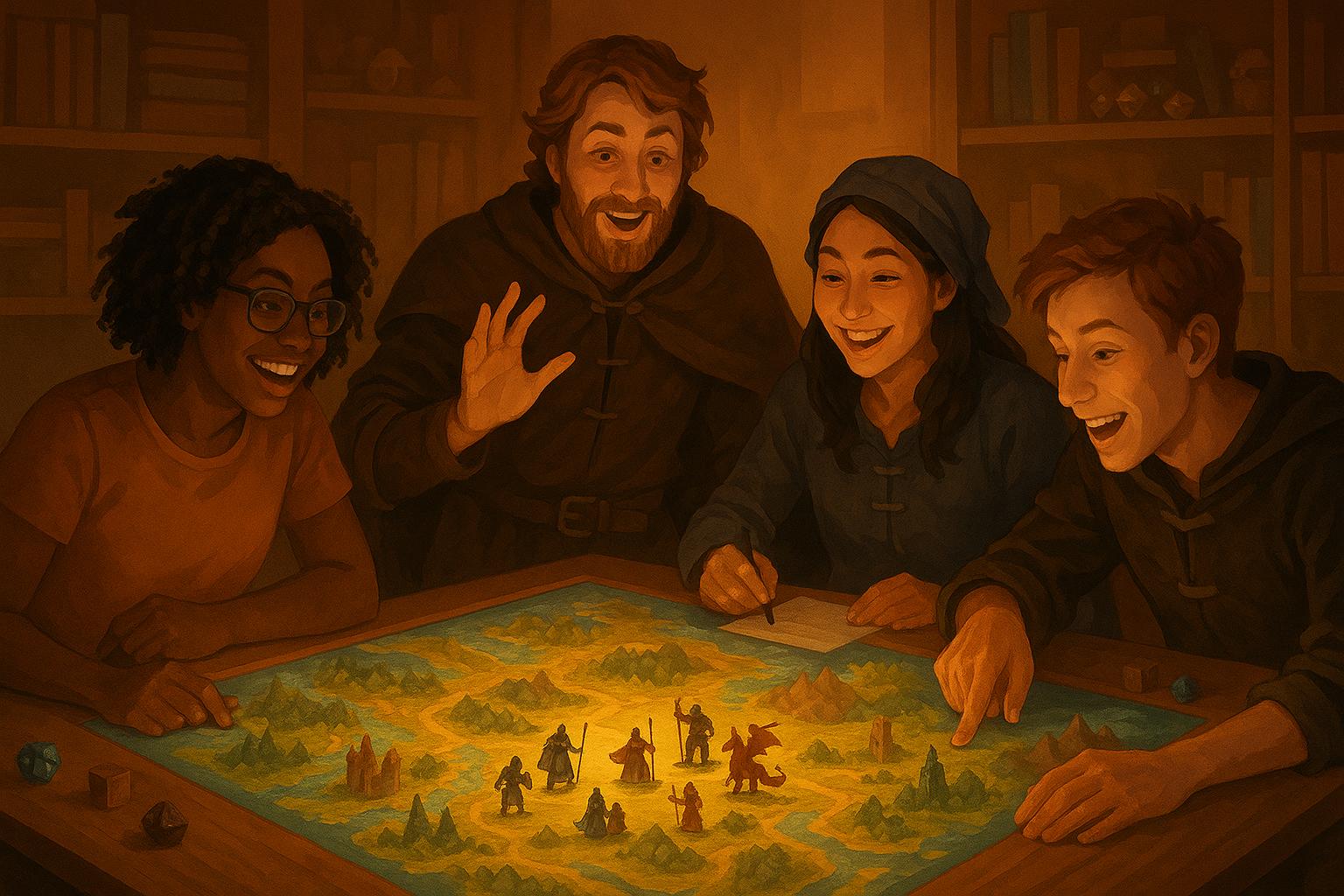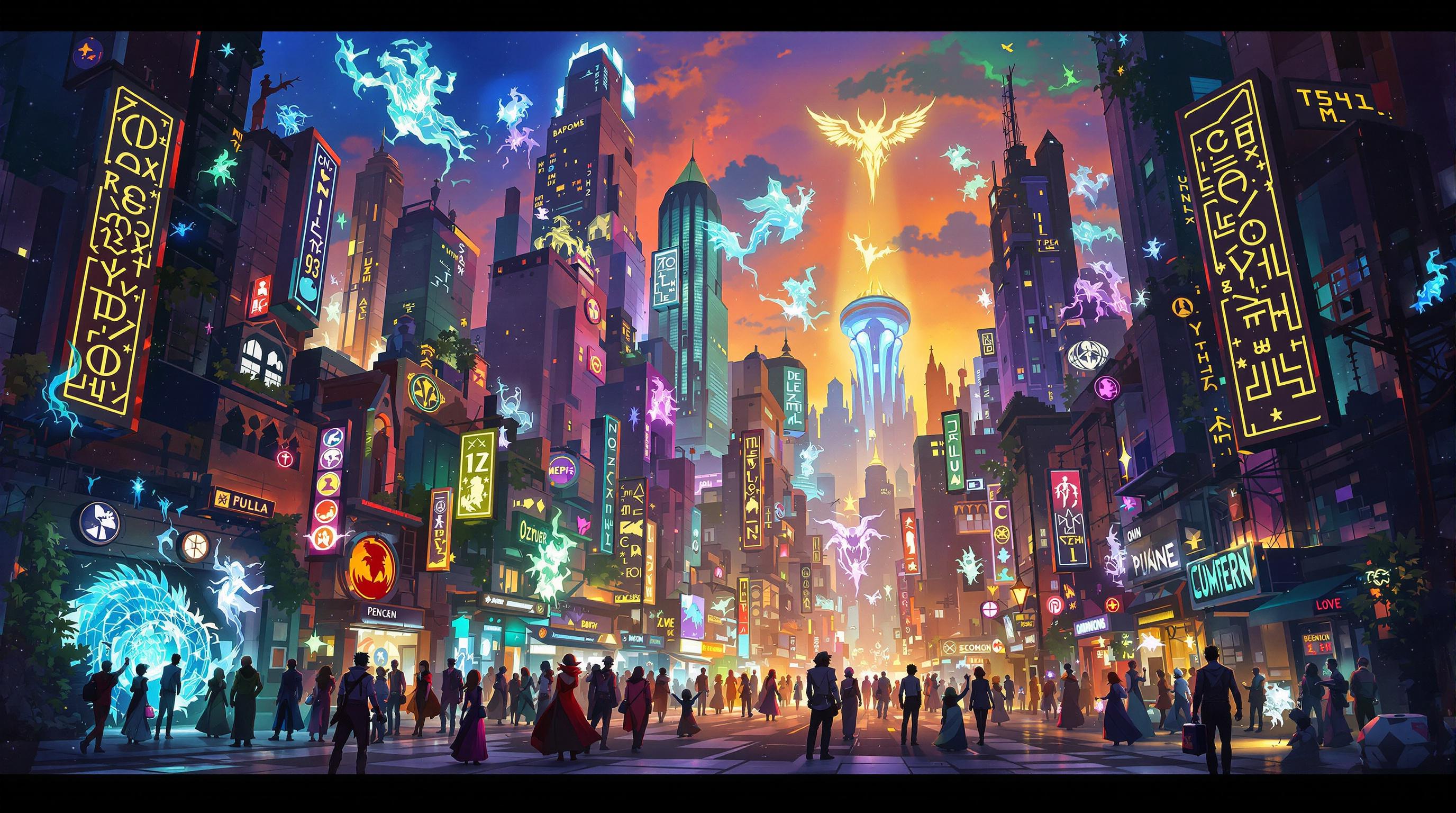Dynamic reputation systems in tabletop RPGs make every choice matter. They track how factions and NPCs view players based on actions, creating a world where decisions shape alliances, rivalries, and storylines. Here's what you need to know:
- Reputation Scales: Systems use scales like -3 to +3 (basic) or 0 to 100 (complex) to measure relationships.
- Player Actions Matter: Major missions, faction alignment, and even timing influence reputation shifts.
- Game Impact: Reputation affects NPC behavior, mission access, and story progression.
- Examples: Games like Blades in the Dark and Pathfinder 2e showcase how these systems enhance immersion.
Reputation systems aren't just numbers - they're tools for storytelling, making your decisions ripple through the game world.
Homebrew Reputation & Faction System for D&D & Pathfinder
Main Reputation System Components
Dynamic reputation systems in tabletop role-playing games (TTRPGs) combine rating scales, player decisions, and situational factors to shape the narrative and gameplay. Below, we break down the essential components of these systems, offering insights for both players and Game Masters. Let’s dive into how reputation changes are calculated and influenced.
Rating Scales and Levels
Reputation in TTRPGs is often measured using numerical scales, which vary depending on the complexity of the system:
| System Type | Scale Range | Description |
|---|---|---|
| Basic | -3 to +3 | Tracks general relationships, from hostile to allied |
| Standard | -10 to +10 | Offers more detailed tracking for gradual reputation shifts |
| Complex | 0 to 100 | Uses a percentage-based system with multiple reputation tiers |
Smaller scales, like -3 to +3, result in more noticeable reputation shifts with each action, while broader scales, such as 0 to 100, allow for more gradual and precise changes.
Player Choice Effects
Reputation isn’t static - it evolves based on player actions. Specific choices can significantly influence reputation scores. Here’s how it works:
- Action Scale: Major missions or deeds can shift reputation by 1–2 points, while smaller tasks or favors may only adjust it by 0.5 points.
- Target Importance: Actions involving high-ranking faction members, such as leaders, carry more weight than those involving lower-ranking individuals.
- Alignment: Choices that align with a faction’s values or ethos tend to yield more substantial reputation gains.
Game Masters should clearly define the triggers and consequences for reputation changes. When players understand how their decisions impact their standing with various factions, they can strategize to achieve their goals more effectively.
Situation Modifiers
Situational factors can amplify or diminish the effects of player actions on reputation. Common modifiers include:
- Public vs. Private Actions: Actions witnessed by multiple faction members often have a stronger impact, typically increasing their effect by 1.5x.
- Crisis Events: Decisions made during critical moments, such as emergencies, may have double the usual effect on reputation.
- Existing Relationships: A player’s current standing - whether highly positive or negative - can influence how future actions are perceived.
- Time Sensitivity: Acting promptly in time-sensitive situations may earn bonus reputation points, while delays can reduce the impact.
For example, aiding a merchant guild during a trade emergency might earn a +2 reputation boost instead of the usual +1. However, if the same action is taken weeks after the crisis has passed, it might only result in a +0.5 increase. These modifiers add layers of complexity and realism, ensuring that player actions carry logical and meaningful consequences.
Effects on Story and Gameplay
Dynamic reputation systems can significantly shape your TTRPG campaign by influencing NPC behavior, mission availability, and how the story unfolds. These systems take the abstract concept of reputation and turn it into a living, breathing part of the game world, where every decision your players make leaves a mark.
NPC Interactions
Reputation scores play a big role in how NPCs react to the party. Characters with a strong reputation might enjoy perks like valuable advice, insider information, or better trade deals. On the flip side, a poor reputation can lead to suspicion, uncooperative attitudes, or outright hostility. Adjusting NPC behavior based on reputation adds depth to the game and makes the world feel more alive.
Mission Access
A character’s reputation with various factions can directly affect the missions available to them. A good standing might open the door to exclusive quests and higher rewards. But a tarnished reputation? That can mean fewer opportunities and tougher challenges. This forces players to think twice about their actions, knowing their choices have real consequences.
Story Development
Reputation isn’t just a number - it’s a storytelling tool. As players' actions shift their standing with different groups, the story naturally evolves. Supporting one faction might alienate another, creating tension and unexpected twists. These shifting alliances and rivalries can lead to new plotlines or alter existing ones, keeping the campaign dynamic and engaging. Game Masters can use these changes to keep the narrative fresh and the world responsive, ensuring that players feel their actions truly matter.
sbb-itb-b8b00a5
GM Guide to Reputation Systems
Creating a reputation system that feels alive and impactful requires thoughtful planning and execution. Here's how to manage reputation mechanics effectively.
Keeping Track of Reputation
Whether you're old-school with pen and paper or prefer digital tools, tracking reputation is essential. You can use a spreadsheet, a notebook, or any system that works for you to log key details about each faction. Here's what to keep track of:
- Current reputation score: The standing of the players with a faction.
- Notable actions: Key events or decisions that influence reputation.
- Important NPCs: Characters tied to the faction who might play a role in the story.
- Rewards or consequences: Outcomes tied to changes in reputation.
A well-maintained log ensures you’re ready to provide dynamic feedback for every shift in reputation.
Highlighting Reputation Changes
When reputation shifts, make it clear both mechanically and narratively. Let the players feel the impact of their actions through:
- NPC reactions: Show how characters in the world respond differently based on the group's reputation.
- Environmental cues: Reflect changes in the world, like a faction's influence growing or waning.
- Faction relationships: Highlight how alliances or rivalries evolve.
- Opportunities or threats: Introduce new challenges or rewards tied to reputation changes.
At the end of each session, summarize these aspects for clarity:
- Major reputation changes and their causes.
- The reasoning behind these shifts.
- Consequences players should anticipate.
- New opportunities that arise from their actions.
This approach keeps players engaged and informed, ensuring they understand the weight of their decisions.
Laying the Groundwork in Session Zero
Session Zero is the perfect time to introduce and clarify your reputation system. A solid framework helps players navigate the social dynamics of your world while making meaningful choices for their characters.
Start by giving players a clear overview of faction reputations. Use a table like this to establish baselines:
| Faction | Starting Rep | Notable NPCs | Key Interests |
|---|---|---|---|
| City Guard | 0 | Captain Hayes | Law & Order |
| Merchants Guild | +1 | Guildmaster Chen | Trade & Profit |
| Thieves' Den | -1 | Shadow Boss | Underground Control |
Examples from Current Games
Let’s dive into some practical examples of how dynamic reputation systems are brought to life in popular games. These examples illustrate how the mechanics we’ve discussed are applied to create engaging and impactful gameplay.
Blades in the Dark: Faction System
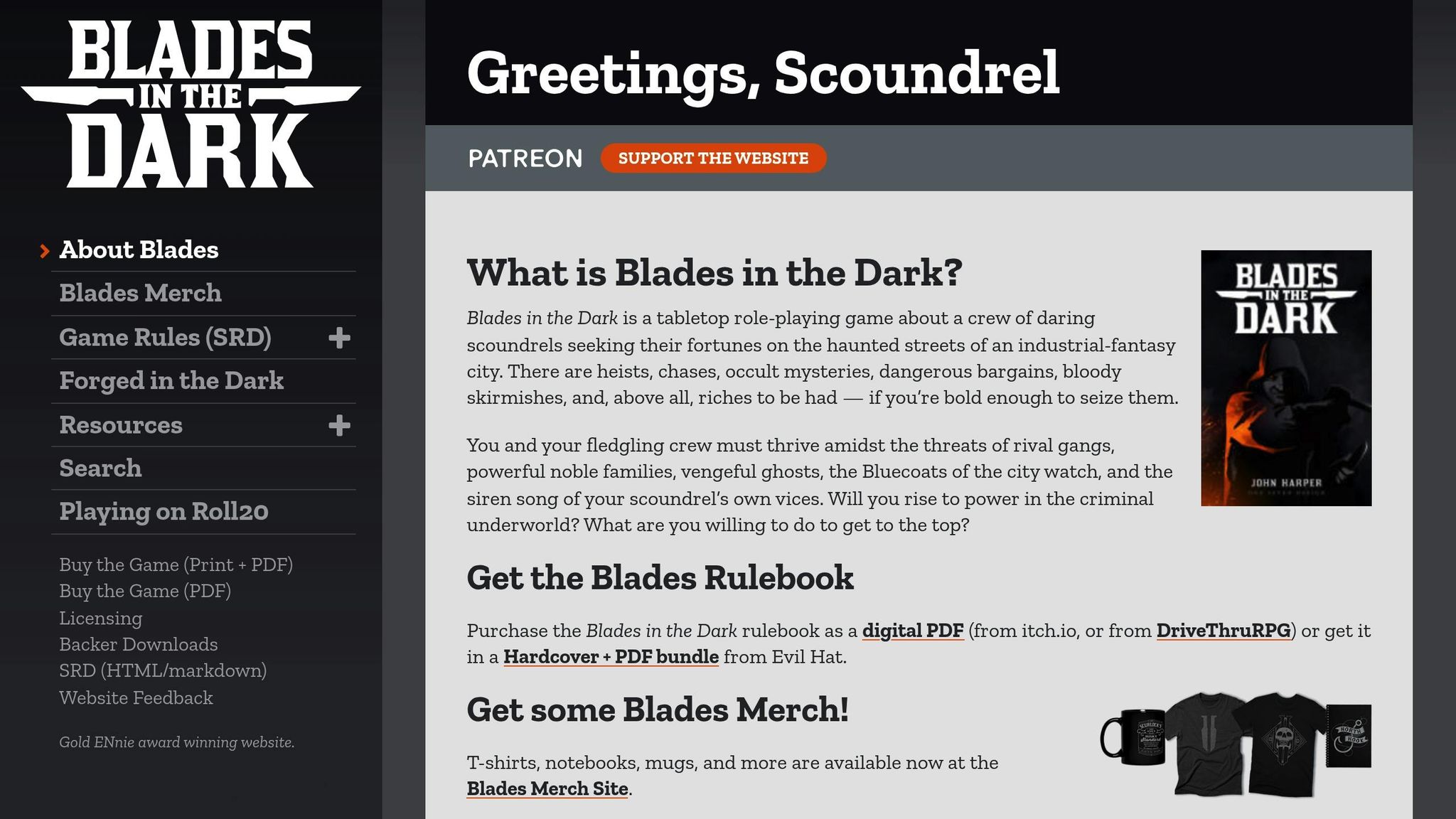
In Blades in the Dark, reputation takes center stage with its innovative faction system. It uses a scale from -3 to +3, paired with faction clocks that respond to the crew's actions. For instance, if a crew decides to ally with one faction against another, their standing with the allied faction improves, but it could damage their reputation with the rival group. Once a faction clock fills up, it triggers narrative events that ripple through the story, leaving players to navigate the consequences of their choices.
Monsterhearts: Social Strings
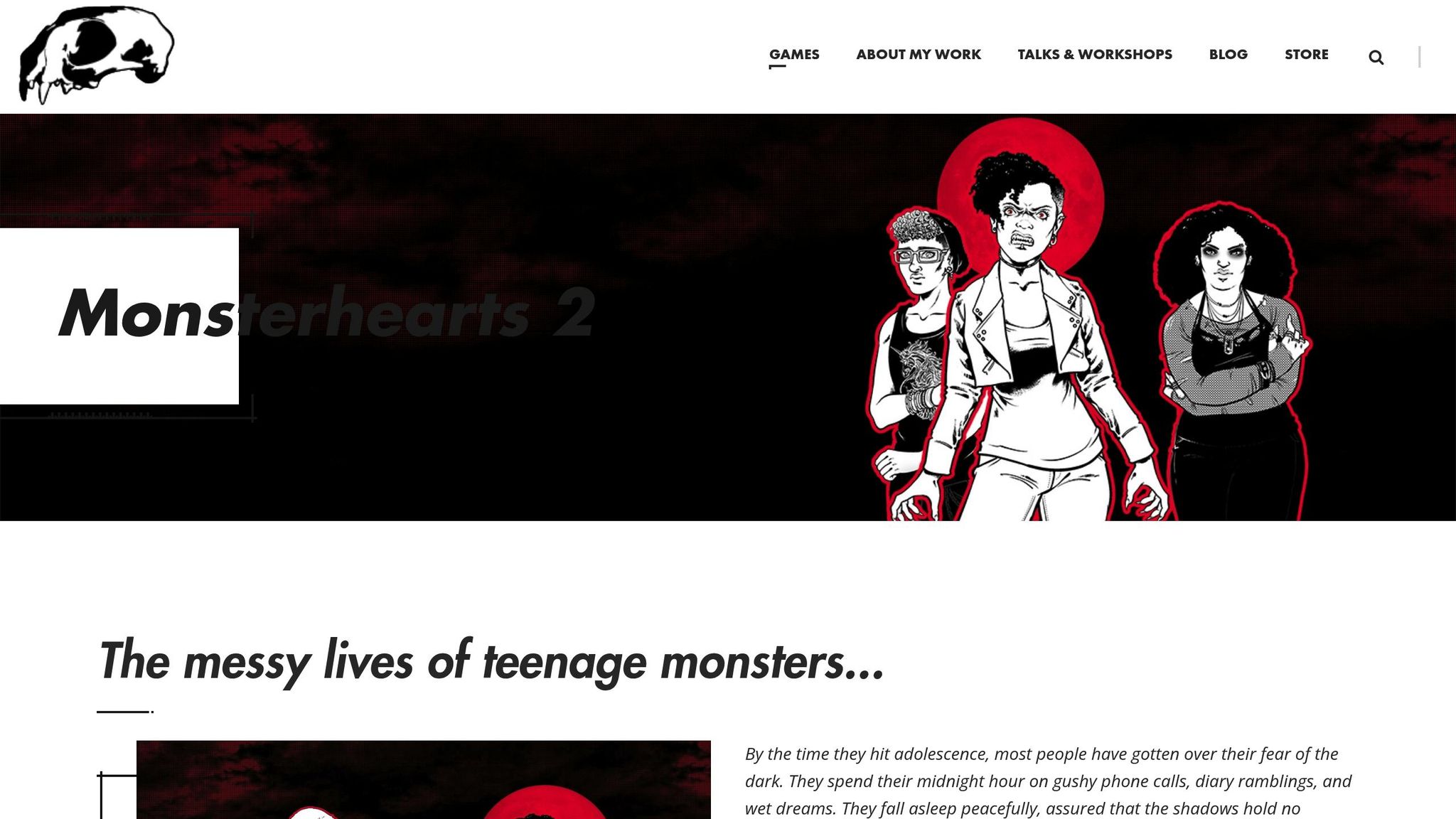
Monsterhearts introduces a unique approach to reputation through its Strings system. Strings are earned during meaningful social interactions and represent emotional leverage and influence over others. Players can use these Strings to sway decisions, impose emotional conditions, or manipulate relationships. This creates a constantly shifting web of social dynamics, where reputation isn’t just a static number but a living, breathing part of the game.
Pathfinder 2e: Faction Reputation
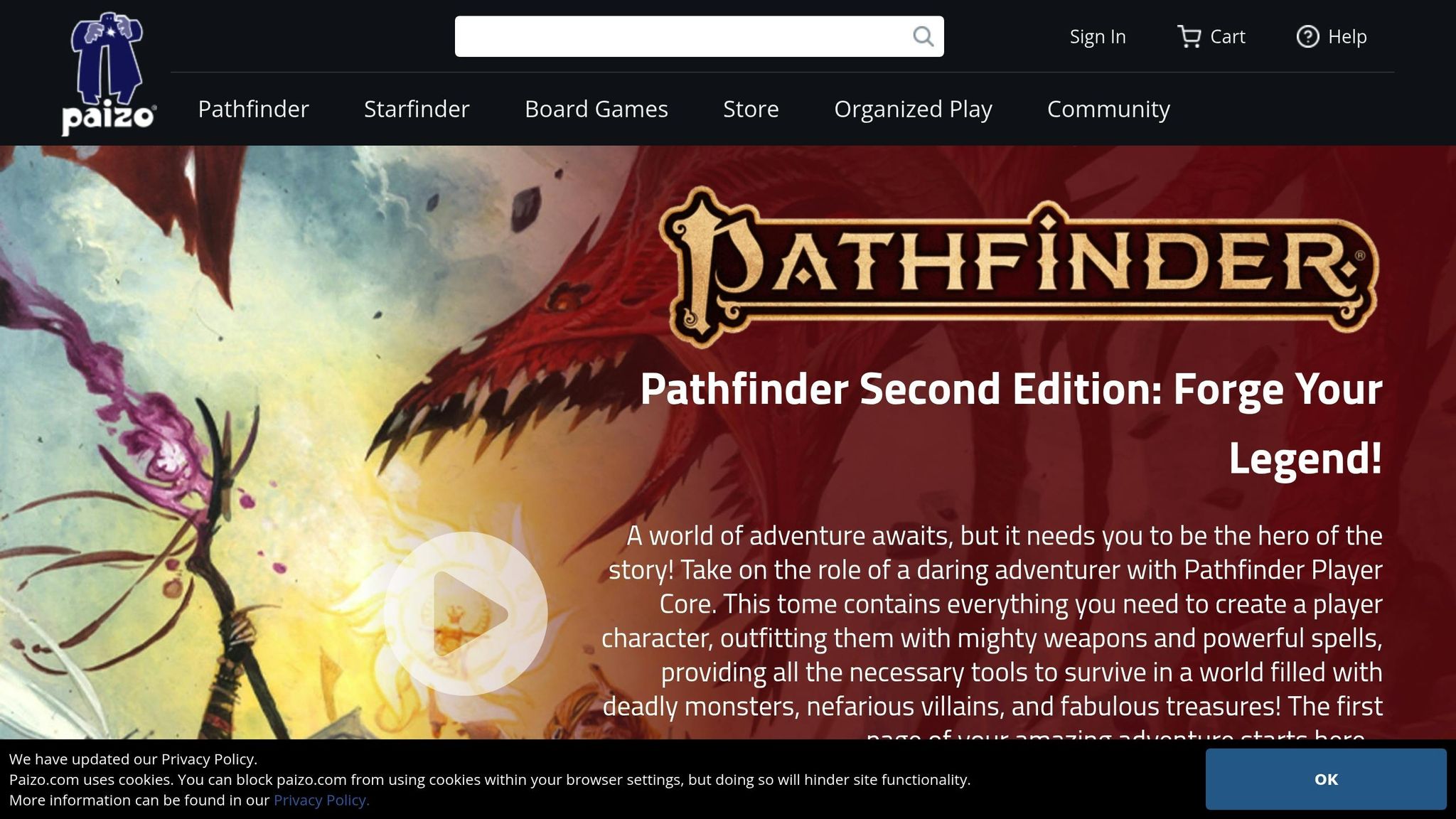
Pathfinder 2e takes a more structured approach with its faction reputation system, directly tying it to character growth and rewards. Players earn reputation points with different factions, which can unlock perks like discounts on items or exclusive benefits. On the flip side, a poor reputation might close off certain opportunities. This system shows how reputation can shape not just the narrative but also the tangible progression of a character within the game world.
Summary
Main Points
Dynamic reputation systems bring a fresh layer of complexity to tabletop RPGs by transforming player decisions into shifting narratives. These systems weave intricate networks of relationships and consequences, adding depth to the storytelling experience. Games like Blades in the Dark with its faction clocks and Monsterhearts with its Strings mechanic showcase how reputation systems can shape the flow of the game.
The most effective reputation systems include:
- Clear tracking mechanisms: Easy-to-follow tools or methods to monitor reputation changes.
- Gameplay impact: Opportunities or challenges directly influenced by reputation.
- Meaningful consequences: Player actions lead to tangible outcomes within the game world.
- Narrative influence: The story evolves based on reputation-driven interactions.
These elements combine to create a dynamic storytelling experience where every decision matters. Such systems not only enhance gameplay but also serve as inspiration for exploring innovative RPG mechanics.
Finding More Games
The TTRPG Games Directory is an excellent resource for discovering games that feature diverse reputation mechanics. This directory provides detailed descriptions of each title, outlining their unique systems and features. Whether you’re drawn to strategic combat, immersive storytelling, or character-driven gameplay, the directory helps you pinpoint games that suit your group’s preferences.
To explore reputation-focused games, you can:
- Browse categorized listings: Find games organized by themes and mechanics.
- Subscribe to updates: Stay informed with weekly recommendations.
- Share your finds: Contribute new games to the directory.
With so many options, it’s easy to find a system that matches your group’s playstyle and takes your tabletop RPG sessions to the next level.
FAQs
How can Game Masters manage reputation shifts to enhance storytelling without overwhelming players?
Game Masters can make reputation shifts feel meaningful by connecting them directly to the players' actions and decisions. This ensures that any changes in reputation feel deserved and impactful. For instance, if a party aids a struggling village, their reputation might improve within the region, unlocking perks like discounts at local shops or forging new alliances.
To keep things manageable for players, it's important to keep the system straightforward and easy to follow. Make it clear how specific actions affect reputation, and consider using visual tools like trackers or tables to illustrate these changes. Introduce reputation shifts gradually, giving players time to grasp the mechanics without feeling overwhelmed. The ultimate aim is to use these changes to enrich the story, pulling players deeper into the world and creating memorable, dynamic moments.
How can players improve their reputation with factions in games like Pathfinder 2e?
Improving your standing with factions in tabletop RPGs like Pathfinder 2e requires a mix of thoughtful role-playing and smart decision-making. Here are a few strategies to help you enhance your reputation:
- Take on faction-specific tasks: Many factions provide unique missions that, when completed, can boost your standing with them. These quests often tie directly to the faction's goals and values.
- Act in line with the faction's ideals: Understand what the faction stands for - whether it's their beliefs, goals, or code of conduct - and make choices that align with those principles. Actions that reflect their values will likely earn you their favor.
- Build connections with influential NPCs: Positive interactions with key figures within a faction can lead to new opportunities and pave the way for stronger relationships with the group.
Every decision you make influences how factions perceive your character, opening the door to intriguing storylines and fresh gameplay possibilities.
How do dynamic reputation systems improve storytelling in tabletop RPGs?
Dynamic reputation systems in tabletop RPGs bring storytelling to life by letting character actions directly impact how the game world reacts. Instead of relying on fixed reputations, these systems evolve based on the players' choices, shaping interactions with non-player characters (NPCs) and factions in real-time.
This approach adds layers to the narrative, making every decision carry weight and opening the door to surprising twists and turns in the story. If you're a player who enjoys RPGs with immersive storytelling or inventive mechanics, there’s a wide variety of games out there waiting to be explored, each offering its own spin on this dynamic element.
